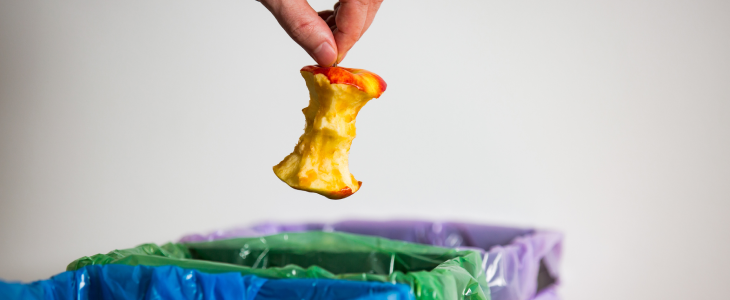Sorting your waste before disposal might seem like a hassle, but it’s an essential step toward reducing your environmental impact. By properly categorizing your trash, you can ensure recyclables are reused, hazardous materials are safely handled, and only true waste ends up in the landfill. This small effort on your part can make a big difference for the planet.
In this blog, we’ll explain the different categories of waste and offer simple tips on how to sort them effectively. Whether you’re dealing with everyday household trash or tackling a big cleanup project, knowing how to properly sort your waste will make disposal easier and more responsible.
Household Waste
Household waste is something we deal with every day, but sorting it properly can make a big difference in reducing what ends up in landfills. Here’s how to manage the most common types:
Organic Waste: This includes food scraps, coffee grounds, and yard trimmings. Instead of tossing them in the trash, consider composting. Composting not only reduces waste but also creates nutrient-rich soil for your garden.
Recyclable Materials: Paper, cardboard, glass bottles, and certain plastics should go into your recycling bin. To avoid contamination, make sure they’re clean and dry before recycling.
General Waste: Unfortunately, not everything can be recycled or composted. Non-recyclable plastics, ceramics, and certain packaging materials belong in your general waste bin. These items will end up in the landfill, so it’s a good practice to minimize their use whenever possible.
By sorting household waste into these categories, you can reduce your environmental footprint and contribute to a cleaner, greener community.
Hazardous Waste
Hazardous waste requires special care due to its potential to harm the environment and human health. Common hazardous items include:
- Batteries: Old batteries contain harmful chemicals and should never be thrown in the trash.
- Chemicals and Paint: Leftover paints, solvents, and household cleaners are toxic and need to be disposed of through designated hazardous waste programs.
- Electronics: Devices like old TVs, computers, and phones often contain hazardous materials and should be recycled properly.
Always store hazardous waste safely until you can take it to a local disposal facility. *Eclipse Waste Management does not handle hazardous waste, so be sure to use the appropriate services for these materials.*
Construction and Demolition Waste
Construction and demolition waste can quickly pile up during a renovation or building project, but much of it can be recycled or repurposed with proper sorting. Here’s how to handle the most common types:
- Wood and Lumber: Scrap wood can often be recycled or reused in other projects. Check with local recycling centers to see if they accept untreated wood.
- Concrete and Brick: These materials are heavy but highly recyclable. Many facilities will crush them for reuse in new construction projects, reducing the need for raw materials.
- Metal: Items like steel beams, copper pipes, and aluminum siding should be sorted out for recycling. Metal is one of the most valuable materials to recycle due to its endless recyclability.
Other materials like drywall and plaster should be properly disposed of according to local regulations. By carefully sorting construction waste, you not only save on disposal costs but also contribute to a more sustainable building industry.
Specialty Items
Specialty items like tires, mattresses, and large appliances often require more than just a trip to the curb. These items are typically not accepted by regular waste collection services and may need to be taken to specialized disposal facilities. For example, many recycling centers accept old tires for repurposing, while some retailers offer take-back programs for old mattresses and appliances.
Proper disposal of specialty items is crucial to avoid environmental harm and potential fines for illegal dumping. Before getting rid of these items, check with local programs or specialized services to ensure they’re disposed of responsibly and legally.
When To Call Eclipse Waste Management
When you’re dealing with large amounts of waste from a home project, event, or cleanup, Eclipse Waste Management is here to help. Whether it’s household debris, construction waste, or bulky items, we provide reliable dumpster rentals that make disposal easy and efficient. Don’t let waste pile up—contact Eclipse today to schedule your dumpster rental and simplify your cleanup process. We’re ready to assist you with all your waste management needs!


